"It's been a while! I've been baking Ethiopian Anasora for a while now!"
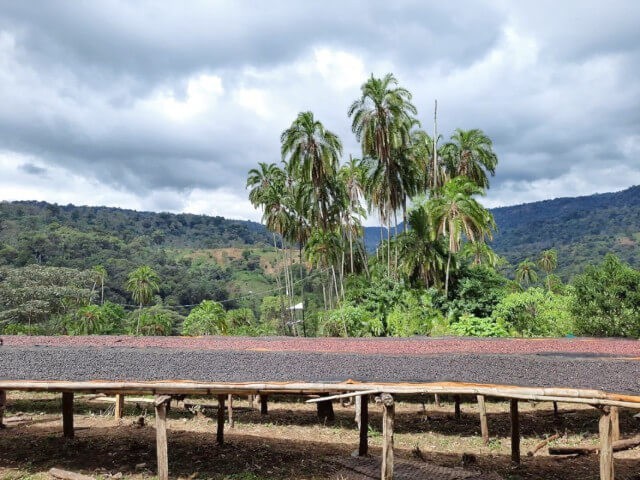
This is a refined and elegant coffee. It has a clean taste, with citrus notes such as orange and a red wine-like flavor. The smooth mouthfeel is also appealing, resulting in a great cup quality.

Anasora Washing Station is located in the Anasora settlement at an altitude of 1,900 meters in Shakiso County, northwest of Guji. Guji is a zone in the Oromia Region and is named after the Oromo tribe that lives in the area. In the ECX category, it was previously categorized as Sidamo, so it was categorized as Sidamo-Guji.
Coffee is grown in five woredas (counties): Uraga, Adra, Shakiso, Hambela, and Kercha. Shakiso is known as one of the most environmentally rich areas in Ethiopia, where coffee is grown in a lush forest belt.
The people who live in this area are mainly the Oromo people, from whom Guji is named, as well as the Gedeo and Amhara peoples. Washing stations are said to have been introduced to Ethiopia in the 1970s, and Guji and the neighboring Yirgacheffe and Sidamo areas are considered to be the pioneers. Washing stations have a long history, and Guji is considered a representative production area in Ethiopia and a renowned producer of high-quality coffee.
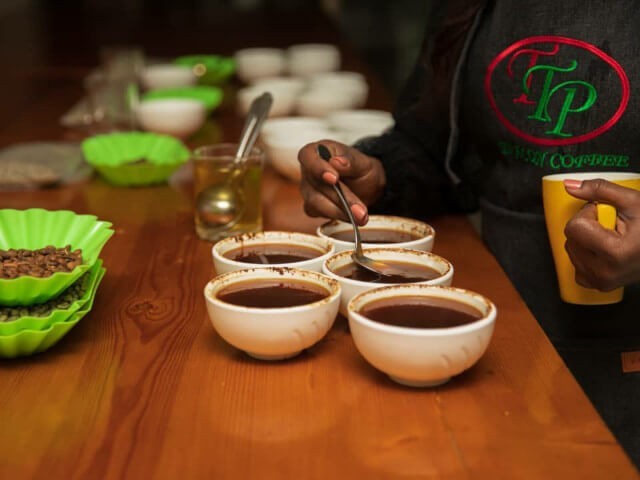
The Anasola Washing Station has 12 fermentation tanks and 280 African beds on a 5.2 hectare site, and during the harvest season, cherries are brought in daily by over 300 small-scale farmers living in the surrounding area.
Anasola Washing Station aims to produce high-quality coffee that meets Grade 1 standards, and the cherries brought in through the natural process are sorted again to separate only the ripe cherries. The sorted cherries are then transported to African beds with assigned table numbers, where they are spread thinly, stirred, and sorted repeatedly until they reach the ideal moisture content, which takes about three weeks.
Thanks to the rich volcanic soil, the microclimate caused by the natural environment and complex topography, and the temperature differences between day and night, the cherries ripen slowly and have the exotic and unique flavor that is unique to Guji. Since Guji was categorized as a coffee-producing region, the motivation of the washing stations and producers has increased, bringing vitality to the region.


Elegant Guji Natural
This is a classy and elegant coffee. It is clean, with a citrus flavor such as orange and a red wine flavor, and the smoothness of the mouthfeel is also appealing, resulting in a great cup quality.
Anasora washing station is located in the Anasora settlement at an altitude of 1900m in Shakiso County, northwest of Guji. Guji is one of the zones in the Oromia region and was named after the Oromo tribe that lives in this area. In the ECX category, it was categorized as Sidamo in the past, so it was categorized as Sidamo Guji.
Coffee is produced in five woredas (counties): Uraga, Adra, Shakiso, Hambela and Kercha. Shakiso is known as one of the richest areas in Ethiopia, with coffee grown in a lush forest belt.
The people who live in this area are mainly Oromo people, from whom Guji is named, as well as Gedeo and Amhara peoples. Washing stations are said to have been introduced to Ethiopia in the 1970s, and Guji and the neighboring Yirgacheffe and Sidamo areas are considered to be the pioneers. Washing stations have a long history, and Guji is considered a representative production area in Ethiopia and a famous producer of high-quality coffee.
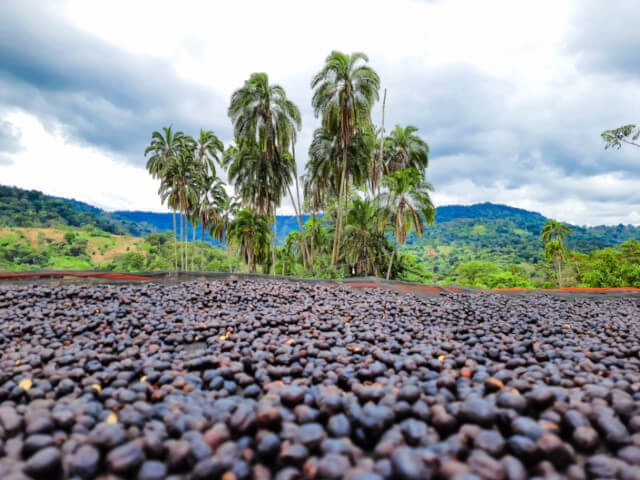
The Anasola Washing Station has 12 fermentation tanks and 280 African beds on a 5.2 hectare site, and during the harvest season cherries are brought in every day by over 300 small-scale farmers living in the surrounding area.
The Anasola Washing Station aims to produce high-quality coffee that meets the Grade 1 standard, and the cherries brought in for the natural process are sorted again to separate only the cherries that are well ripe. The separated cherries are then carried to African beds with assigned table numbers, where they are spread thinly, stirred, and sorted repeatedly until they reach the ideal moisture level in about three weeks.
Thanks to the rich volcanic soil, the microclimate caused by the complex terrain and natural environment, and the temperature difference between day and night, the cherries slowly ripen and have an exotic and unique flavor that is unique to Guji. Since Guji was categorized as a coffee producing area, the motivation of the washing stations and producers has increased, bringing vitality to the region.
It's possible because it's CROWD ROASTER
A combination of top roasters and high quality raw beans.
A unique taste.
Please enjoy our special coffee.
This package will be delivered to your home mailbox.
* Shin is a sample.
Raw bean cost1,998(tax included)
125g of raw beans (approx. 100g after roasting) About 8 cups


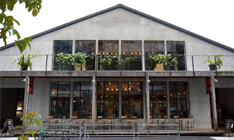






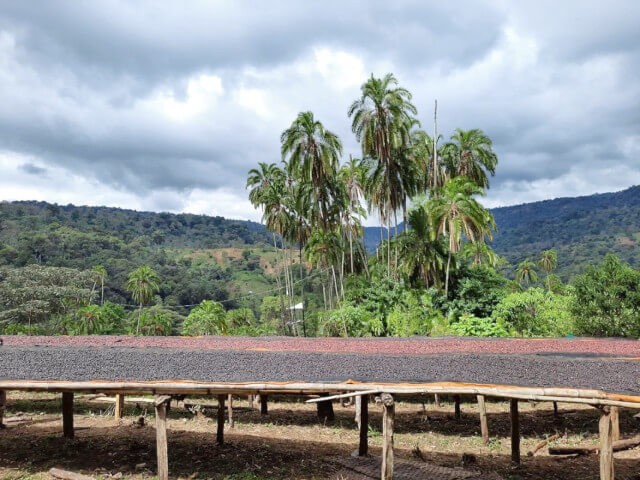

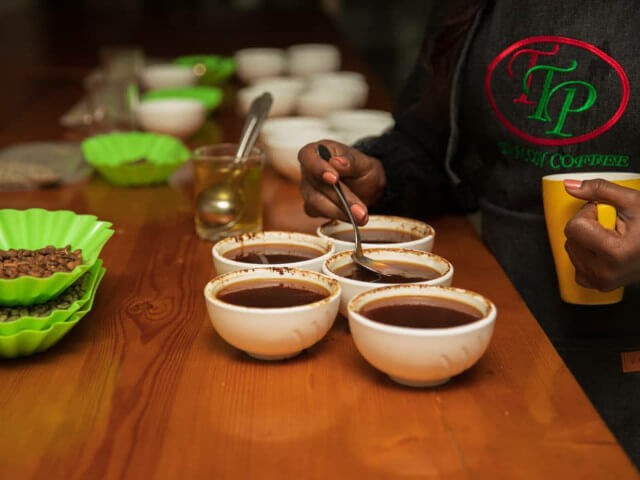
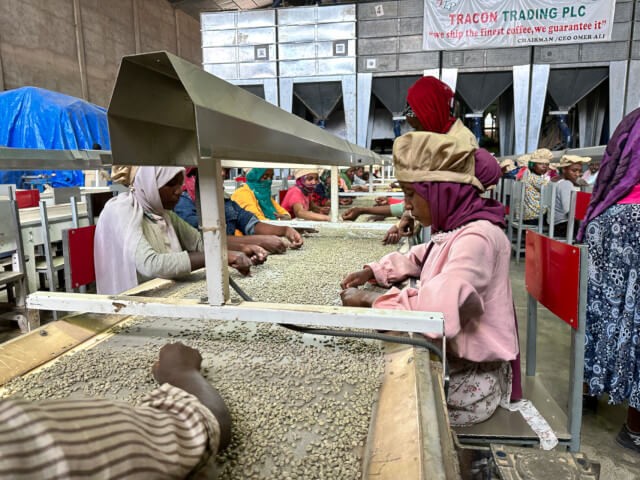


USER COMMENT